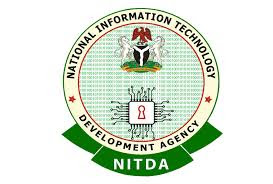
National Information
Technology Development Agency (NITDA) is a public service
institution established by NITDA Act 2007 as the ICT policy implementing arm of
the Federal
Ministry of Communication of the Federal Republic of Nigeria. It has
sole responsibility of developing programs that caters for the running of ICT
related activities in the country. NITDA is also mandated with the
implementation of policies guideline for driving ICT in Nigeria. The Board
shall have power to formulate overall policy for the management of the affairs
of the Agency; and manage the National Information Technology Development Fund
established under Section 12 of the Act including;
(c) Appoint, promote,
terminate, dismiss and exercise disciplinary control over the principal
officers and senior staff of the Agency;
(d) Structure the Agency
into such number of departments as it deems fit for the effective discharge of
the functions of the Agency; and
(e) Exercise such powers as
are necessary of expedient for giving effect to the provision of this Act.
The functions of the Agency as
provided in Section 6 of the NITDA Act include:
(a) Create a frame work for
the planning, research, development, standardization, application, coordination,
monitoring, evaluation and regulation of Information Technology practices,
activities and systems in Nigeria and all matters related thereto and for that
purpose, and which without detracting from the generality of the foregoing
shall include providing universal access for Information Technology and systems
penetration including rural, urban and under-served areas.
(b) Provide guidelines to
facilitate the establishment and maintenance of appropriate for information
technology and systems application and development in Nigeria for public and
private sectors, urban-rural development, the economy and the government.
(c) Develop guidelines for
electronic governance and monitor the use of electronic data interchange and
other forms of electronic communication transactions as an alternative to
paper-based methods in government, commerce, education, the private and public
sectors, labour, and other fields, where the use of electronic communication
may improve the exchange of data and information.
(d) Develop guidelines for
the networking of public and private sector establishment.
(e) Develop guidelines for
the standardization and certification of Information Technology Escrow Source
Code and Object Code Domiciliation, Application and Delivery Systems in
Nigeria.
(f) Render advisory services
in all information technology matters to the public and private sectors.
(g) Create incentives to
promote the use of information technology in all spheres of life in Nigeria
including the setting up of information technology parks.
(h) Create incentives to
promote the use of information technology in all spheres of life in Nigeria
including the development of guidelines for setting up of information technology
systems and knowledge parks.
(i) Introduce appropriate
regulatory policies and incentives to encourage private sector investment in
the information technology industry.
(j) Collaborate with any
local or state Government, company, firm, or person in any activity, which in
the opinion of the agency is intended to facilitate the attainment of the
objective of this act.
(k) Determine critical areas
in Information Technology requiring research intervention and Development in
those areas.
(l) Advice the Government on
ways of promoting the development of information technology in Nigeria
including introducing appropriate information technology legislation, to
enhance national security and vibrancy of the industry.
(m) Accelerate internet and
intranet penetration in Nigeria and promote sound internet Governance by giving
effect to the Second Schedule of this Act; and
(n) Perform such other
duties, which in the opinion of the Agency are necessary or expedient to ensure
the efficient performance of the functions of the Agency under this act.
@Legalnaija
